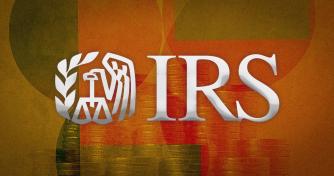 Fitness coach takes IRS to court again in battle for crypto staking reward tax precedent
Fitness coach takes IRS to court again in battle for crypto staking reward tax precedent Fitness coach takes IRS to court again in battle for crypto staking reward tax precedent
This David vs Goliath story now features crypto advocacy group Coin Center in the legal battle over IRS tax policy on staking rewards.

Cover art/illustration via CryptoSlate. Image includes combined content which may include AI-generated content.
Fitness coach and part-time crypto investor Josh Jarrett has filed a lawsuit against the US Internal Revenue Service (IRS) over its tax policy on staking rewards.
In an Oct. 10 post on X, Jarrett shared that his 2021 attempt to clarify the issue was inconclusive as the IRS offered him a refund without addressing whether their tax stance on staking rewards was correct.
While Jarrett declined the refund then, he stated that he was suing the federal agency again due to his 2020 staking rewards.
The new legal battle seeks clarity on how the IRS treats staking rewards and aims to prevent similar issues from arising in the future.
His latest attempt is supported by the Washington, D.C.-based crypto advocacy group Coin Center.
Staking rewards debate
According to the Oct. 10 court filing, Jarrett argues that taxing staking rewards as income upon creation leads to unnecessary complexity and over-taxation for individuals involved in staking.
Crypto staking allows token holders to act as validators in a Proof of Stake (PoS) network. By locking tokens in a staking contract, participants earn digital assets for supporting the blockchain.
Jarrett contends that tokens generated through staking should be treated as property and taxed only when sold.
He stated:
“Staking rewards are new property—not income. Just like the IRS doesn’t tax farmers when crops grow or miners when they find gold or silver, they shouldn’t tax tokens when they’re created. The law is clear: tax should only be applied when they are sold.”
The crypto advocacy group Coin Center supports this view. The organization argued that the IRS’s stance results in over-taxation, compliance challenges, and stifles innovation.
According to the firm, block rewards, earned when validators add new blocks to a blockchain, are new cryptocurrency tokens. So, the IRS’s current policy unlawfully taxes these tokens as income when created. However, since block rewards represent new property, tax should only apply when they are sold.
Coin Center emphasized that federal tax laws and agencies’ interpretations of these laws can significantly discourage using digital assets and permissionless technologies in the US.





 Farside Investors
Farside Investors 

 CoinGlass
CoinGlass 























































































